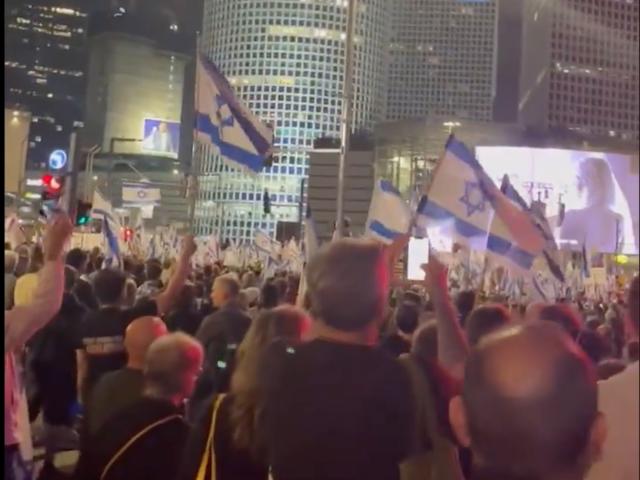The protracted conflict between Israel and Hamas has now stretched into its seventh month, a period marked by intense military engagement and significant humanitarian concerns. Efforts to broker a truce and secure the release of hostages are anticipated to resume in Cairo, signaling a critical juncture in what has become the most devastating Gaza war to date. Amidst the backdrop of sustained combat, Israel's government finds itself navigating a complex landscape of international criticism and domestic unrest.
The Israeli populace, while largely supportive of the nation's defensive measures against Hamas, is divided. A segment of the liberal community is vocally advocating for the prioritization of hostage negotiations. This internal discord was prominently displayed as tens of thousands of Israelis voiced their opposition against Prime Minister Benjamin Netanyahu's leadership in a massive demonstration in Tel Aviv, now dubbed Democracy Square. This protest, drawing participants who have consistently opposed Netanyahu's policies, underscores a yearning for political change amidst the ongoing conflict.
Tens of thousands out on Democracy Square in Tel Aviv, demanding elections now, a deal to release the hostages now.
— Democracy Drones IL (@DemDronesIL) April 6, 2024
עצרת קפלן עכשיו
🎥 @barakdor#electionsnow #BringThemHomeNow #BringThemHome #timeisup pic.twitter.com/shGwaNvSJY
Protesters are clamoring for immediate elections, seeking Netanyahu's resignation as the war verges on its seventh month. Opposition figures, including Yair Lapid, have criticized the government's steadfastness, arguing for a renewed direction that could offer Israel a chance to progress beyond its current impasse.
Central to the protesters' demands is the call for negotiations with Hamas concerning the return of hostages—a process that has already been underway, albeit fraught with complexities. Hamas's stringent conditions for dialogue, including a complete Israeli withdrawal from Gaza and the resettlement of displaced Palestinians, present significant challenges. The prospect of releasing numerous Palestinian prisoners, some responsible for Jewish casualties, in exchange for hostages, is a contentious issue that could potentially embolden Hamas - and that alone is seen by many as a proposal as granting undue victory to the terror group. Despite significant offers from Israel, some even proposed by Qatar or the United States that called for a nearly 20-1 prisoner-hostage ratio, including terror leaders who have "Jewish blood on their hands", Hamas has repeatedly turned the offers down.
🚨🇮🇱 BREAKING: CAR STRIKES ANTI-NETANYAHU PROTESTERS IN TEL AVIV, 5 INJURED
— Mario Nawfal (@MarioNawfal) April 6, 2024
A vehicle incident during an anti-Netanyahu protest in Tel Aviv has left five individuals injured, one seriously.
Source: @TheInsiderPaper pic.twitter.com/xILZeiTPSy
Despite the public outcry and protests, the sentiment among the Israeli populace largely opposes concessions that would enable Hamas to maintain its stronghold in Gaza. There is a strong consensus in favor of decisive military action, particularly in Rafah, where Hamas leadership and hostages are believed to be located.
The recovery of Elad Katzir's body, a farmer taken by Palestinian militants, highlights the personal tragedies intertwined with the broader conflict. The Israel Defense Forces' (IDF) efforts to repatriate hostages underscore the ongoing human toll of the war. With a significant number of Israelis still held in Gaza, the nation continues to grapple with the ramifications of Hamas's initial assault, which claimed over a thousand lives, predominantly civilians.
This disgusting anarchy symbol was held at the protests in Tel Aviv last night.
— Mossad Commentary (@MOSSADil) April 7, 2024
The families of the hostages should take note pic.twitter.com/FzDMzR2bSi
As Israel marks six months since the onset of hostilities, the nation reflects on the profound impact of the conflict. President Isaac Herzog's remarks encapsulate the collective mourning and resilience of a community confronting the harrowing realities of war. In the face of adversity, Israel remains steadfast in its commitment to defending its citizens while navigating the path toward a peaceful resolution.


